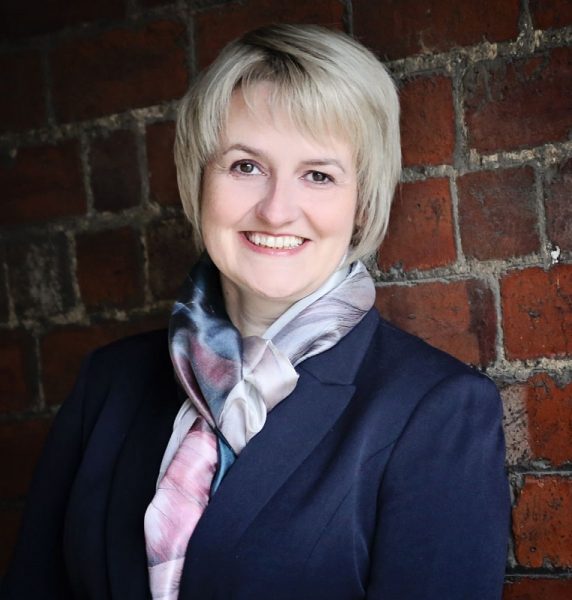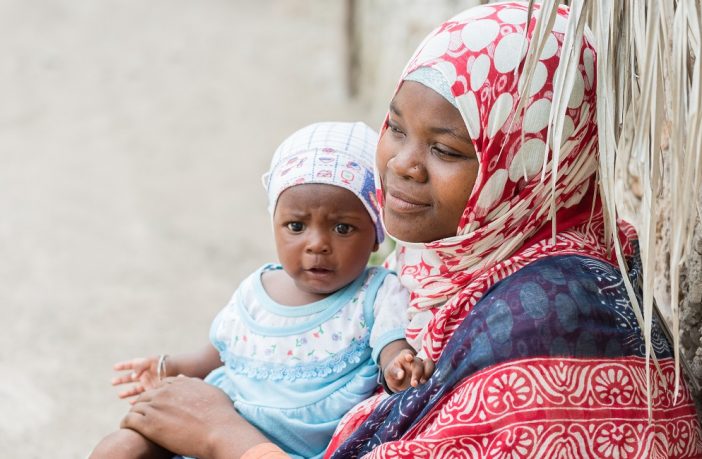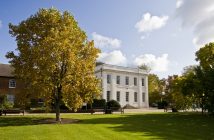The Open University’s Deputy Vice-chancellor Josie Fraser reflects on why International Women’s Day is so important to her.
“The world is celebrating International Women’s Day. An apt time to recognise women’s achievement and promoting an equal and enabled world, all of which is important to me.

“A lot of my work choices are based around a strong desire to promote equality – with equality in education and in STEM (science, technology, engineering and mathematics) as particular interests.
Being aware of privilege
“From sponsoring the Women @OU network at the Open University, to being an engaged Aurora Champion at my University (sponsoring women in Higher Education through leadership training), to being involved in the Institute of Coding (in which The Open University and FutureLearn are active partners, working with many universities, the Office for Students, and a number of technology companies to transform computer science education and increase diversity in technology).
“I have got a privileged position; having had a fully funded higher education (thanks to means-tested grants back when I was 18 and going to University from a working-class Midlands family).
“I’m also privileged in that I have been in constant employment since I graduated – in Universities and medical research organisations. I’ve studied and worked in the UK (Leeds, Bradford, Medical Research Council in London, Cambridge, and the OU in Milton Keynes) and have also worked in the USA (my oldest daughter was born while I was working at University of Massachusetts Medical School).
“The opportunities that education has opened up for me have included lots of chances to travel – I’ve attended conferences all over the place in my discipline (neuroscience) – from San Antonio to Budapest.
“Education was the key that enabled travels I couldn’t have imagined, the fascinating people I have met along the way – and led me to my passion for developing all kinds of people through education.
“Diversity – whether that’s more women engineers, more male nurses, more BAME colleagues in leadership positions, or more disabled people in technology – is so important.
There is plenty of evidence that diverse teams are more effective. I believe that education opens doors and opportunities for all kinds of people.
My professorship is a joint research & teaching chair – I love all aspects of academic life – and what education has done for me perhaps explains why I am so passionate about better access to quality education for all, which is, of course, the OU’s founding principle.
“There’s no doubt that in some parts of the world, which come front of mind on International Women’s Day, access to education for women and girls can be challenging.
“I’m particularly proud of projects at The Open University that connect women to education and have equality at their heart. GATE for instance, which stands for Girls’ Access to Education in Sierra Leone, aims to address the lack of female teachers in the country.
“Few role models and the relatively small proportion of girls who complete a full high school education, make it hard for girls to aspire to a career in the teaching profession. As part of GATE, funded with aid from the UK Government, the OU has designed an innovative pathway to the teaching profession for young women in rural areas. Young women who were unable to complete secondary schooling are selected to become learning assistants and do practical work in schools whilst studying distance learning programmes to become qualified teachers. It empowers teaching assistants, who have become a valuable resource, and offers a higher level professional qualification and career path.
Great examples supporting girls’ education
“There are other great examples too. In some of the poorest districts in Zimbabwe, OU study materials are helping girls who have never been enrolled in school or who have not completed their basic education. The programme is called SAGE (Supporting Adolescent Girls’ Education), and it is part of the UK Aid funded Girls’ Education Challenge, supporting up to 1.5 million marginalised girls to have access to quality education in 17 countries. The OU materials are designed to be accessible and relevant.
“Enabling education to travel distances and reach places where access to a campus is unlikely, is vital for our global future. The Open University and other distance learning specialists will play an increasingly vital role in the future of education; as will the platforms where flexible, online-enabled learning is made available to people everywhere, like FutureLearn. I am delighted to join the board at a time when we are collectively embarking on something as new and exciting as microcredentials. The concept is for a University-validated and industry-approved, employment focused, bite-sized, high quality piece of learning. This is learning that is ideal for career enhancement.
“At The Open University, this is an opportunity to extend our current qualification-focused approach to lifelong learning, to additionally serve someone who may already have a first qualification, but who wants to learn flexibly in smaller pieces, in order to top up their education, for their current job or the one they want next.
A future that is going to be digital and with lifelong learning at its core
“My own two daughters are a conscious reminder for me of the changing nature of learners. They are a generation who have grown up with smart phone technology that connects them to classmates old and new, to their homework and to their teachers, and they expect to have learning at their fingertips – they are more likely to ask Siri or Alexa than they are to ask mum or consult a text book.
“They are lucky enough to have grown up around universities, in developed countries, and they assume that they will go to a campus-based university in a few years time when they reach 18. Despite this, they also foresee wanting a good digital experience, having more than one career in their likely long lifetimes, and they expect to learn new things over time.
“It doesn’t seem that long ago that I was a STEM PhD student: working on potential treatments for Alzheimer’s disease, alongside helping my supervisor with an early foray into technology-enhanced learning – a simulated experiment that she was developing. I could not, back then, have imagined my journey – in research or in education.
“Bringing learning to people everywhere, to create equality of opportunity is something I could only have dreamt I would be a part of, back at the start of my career.
“So there is definitely lots for me to celebrate this International Women’s Day!”



